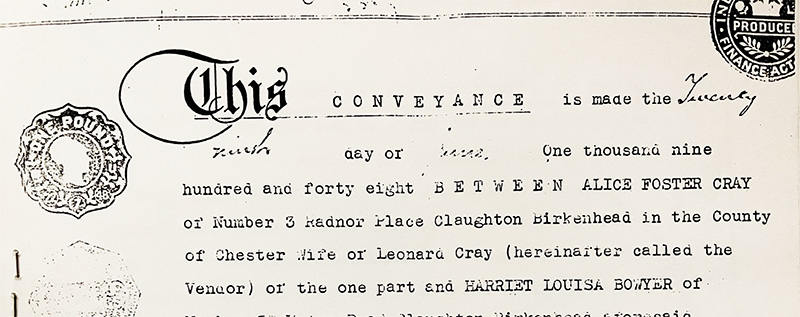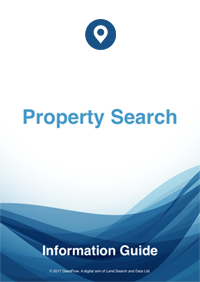Obtain a Copy of a Conveyancing Deed
Contents
Overview
Prior to Land Registration ownership of a property was confirmed by producing a large bundle of documents known generally as the Associated Documents. Registration of your property at the Land Registry rendered the production of the old deeds unnecessary. However, there are times when the Deeds would be very useful. This article describes such circumstances and how to obtain a copy of them.

When an Old Deed may be Useful
Old Deeds are generally disposed of by the Land Registry when they are sent to them for First Registration, as they become largely redundant. Any document considered important by the Land Registry will be retained digitally and made available for purchase.
The old Deeds may be useful in the following circumstances:
1. Where a Boundary Dispute arises
Although official evidence of ownership is provided by the Title Register and Title Plan, because boundary disputes usually involve small areas of your garden the Register and Plan are of limited help. The old Associated Documents are often allowed as extrinsic evidence where there is a court hearing, and are certainly of persuasive authority. The Deeds may refer to the acreage of a property and also provide a more accurate description of the property extent. There may also be a detailed plan attached to the Deed, sometimes hand drawn with measurements, angles and dimensions.
2. To ascertain the Wording and Intent of a Restrictive Covenant
The old deeds often go into laborious detail about a Restrictive Covenant, sometimes taking up a whole page with its description. Rather than copying this detail into the Title Register the Land Registry will make reference to the Deed and make a copy of it. A file note will be made at the end of the paragraph referring to the Covenant, and the Deed creating it will be referred to within the paragraph. Whenever an issue arises relating to a Restrictive Covenant (or a Personal Covenant) you should always endeavour to obtain a copy of the Deed creating it if it is available.
3. To Obtain further Details of an Easement
As with Restrictive Covenants issues may arise with regard to an Easement, and again, it would be wise to obtain a copy of the Deed creating and/or varying the easement if it is available.
4. Where Part of a Property has been Sold Off
Where part of a property has been sold it is usual to make covenants and easements relating to different parts of the property, e.g. to enable the accessing of a drive, to access water pipes, etc. The Land Registry prepare a new Title Register and Title Plan for the part sold. It is not uncommon for a dispute to arise relating to the boundaries, covenants or easements of the property sold or retained. In such a case a Prior Copy of the Title Register and Title Plan should be obtained to show the position prior to the sale, and also a copy of the Transfer Deed. This Deed would normally contain a chartered surveyor’s drawing of the land being sold and would be crucial evidence in the event of a dispute.
How to Obtain a Copy of a Conveyancing Deed
The practice of the Land Registry is to take a digital copy of a Conveyancing Deed that contains useful information that has not been entered into the Title Register. This Deed would be referred to in a paragraph of the Register and identified, and following the paragraph a memo would be made to the effect that a copy has been made of the Deed. This signifies the Deed’s availability for purchase.
All you need to do to obtain a copy is to select the Associated Documents button below to order a copy of any Deed you know to be available, and you should have it within the hour, if ordered during office hours.
Prior Copies Search
Obtain prior copies of the Title Register as well as options to include the Current Title Register, the Associated Documents and/or a Prior Copy of the Title Plan.
£19.95House and Land History
This search provides All Prior Copies of the Title Register and all digitally held Conveyances and Transfers for the property as well as options to include Census and Electoral Records.
£89.95Associated Documents
Deeds creating Restrictions, Covenants, Easements, etc. are often kept digitally by the Land Registry and made available for sale due to their invaluable detail and content to assist in further understanding the Restrictions, etc.
£29.95


